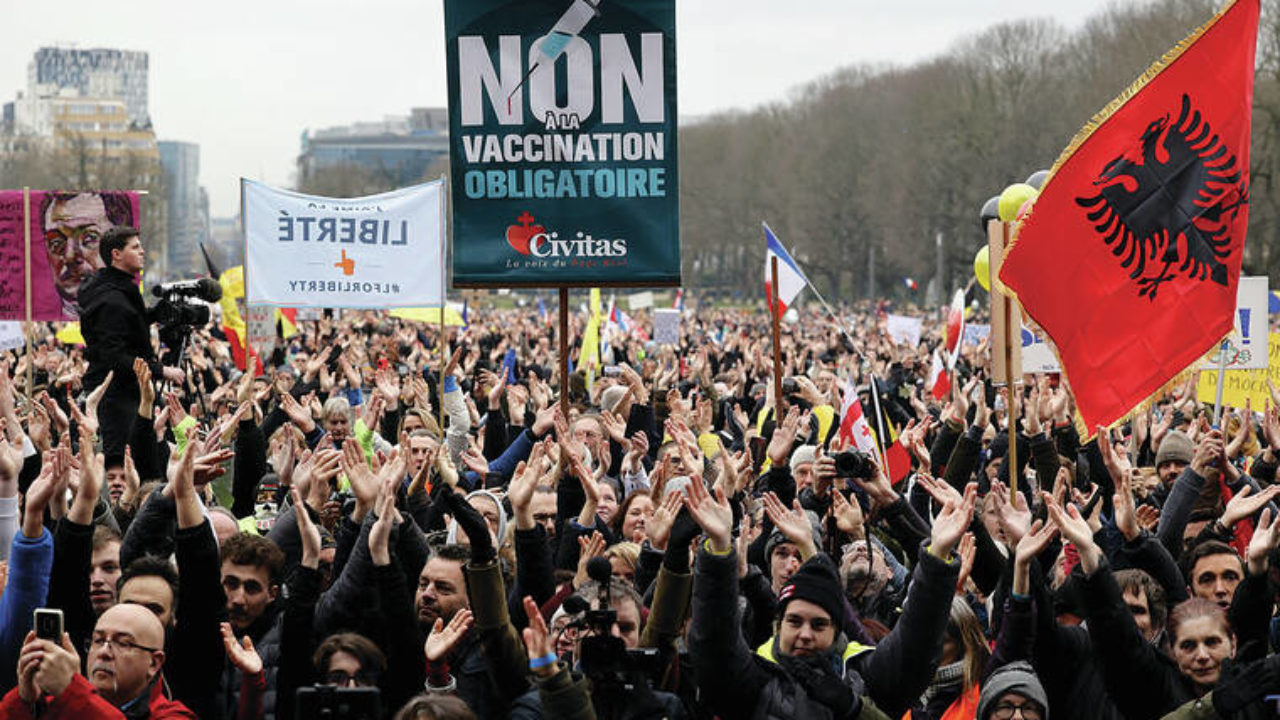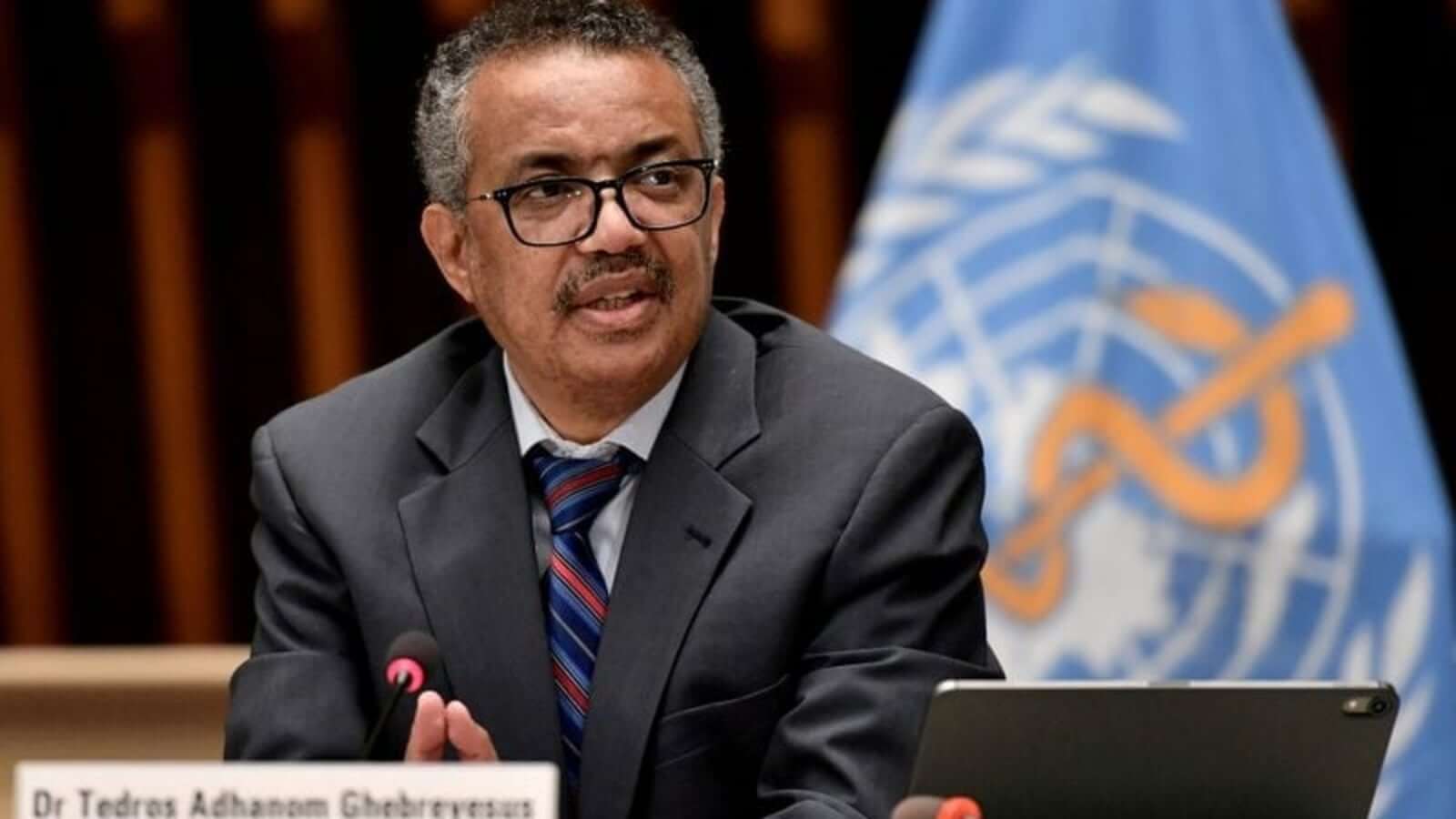World Health Organization (WHO) chief Tedros Adhanom Ghebreyesus warned of the dangers of the increasingly popular assumption that the COVID-19 pandemic is at its “end game.” This comes as Omicron-led waves across the world have resulted in a surge in COVID-19 cases, taking the total number of infections to over 350 million.
Addressing a WHO executive board meeting on Monday, Tedros said: “It’s dangerous to assume that Omicron will be the last variant and that we are in the end game.” Instead, he said that the global conditions were “ideal for more variants to emerge.” Already, the United Kingdom is investigating a new sub-lineage variant, called BA.2, which does not have the specific mutation that differentiates the Omicron variant from the Delta variant.
Adding to his warning against laxity in following COVID-19 restrictions, Tedros said that with the world entering the third year of the pandemic, it is in a “critical juncture” that requires global cooperation. He said that to bring an end to the COVID-19 pandemic, it is necessary to avoid “lurching between panic and neglect.”
He insisted that the pandemic could be brought to an end by the end of the year. To achieve this, he urged countries to deploy their resources to maximise their strategies and tools, specifically in ensuring sufficient testing and vaccine coverage.
However, he said while it was true that the international community should be prepared to live with the virus for the “foreseeable future,” we should not give COVID-19 a “free ride.” For this, he said that it was necessary to ensure that a “sustained and integrated system” should be set up to prevent severe cases or hospitalisations.

In addition, he called for an increase in funding to strengthen the WHO. “Let me put it plainly, if the current funding model continues, WHO is being set up to fail,” he warned and called for a “paradigm shift” that is matched by funding for the organisation.
As the WHO raises alarm about the need for vigilance against the virus, several countries across the world are witnessing protests against COVID-19 restrictions. On Saturday, protestors gathered in Paris, Athens, Stockholm, and Helsinki to voice their opposition to COVID-19 measures imposed to restrict the spread of the virus.
In Stockholm, over 4000 people protested the Swedish government’s decision to require vaccine certificates for participants of indoor events with over 50 people. Similarly, demonstrators in Helsinki and Paris also protested their countries’ stricter vaccine pass requirements for indoor activities. Meanwhile, on Sunday, in Belgium, police forces fired water cannons and tear gas as protestors attacked a European Union diplomatic services building. Similar protests against vaccine and mask mandates have also been seen across the United States.
Tedros’s warning also comes as countries witness lower testing rates and an overall disregard for restrictions and COVID-19 protocols. This has primarily been a result of steadily increasing rates of vaccination, along with the Omicron variant being perceived as a less serious variant than its predecessors.
Meanwhile, several experts are also suggesting that the COVID-19 disease is approaching the endemic stage, which is achieved after a “constant presence” of a disease that will eventually make its spread and cure more predictable. For instance, a senior epidemiologist from the All India Institute of Medical Sciences (AIIMS) said that due to the vaccine rates and the severity of the natural infection, soon the virus will “convert into the endemic virus.” He said that as the variants were growing less serious, most of the global population would have contracted COVID-19 soon, thereby developing immunity to the virus.
Similarly, Dr. Anthony Fauci, the US’ infectious disease adviser, said that COVID-19 is likely to convert into an endemic disease and will not be eradicated. Nevertheless, he said that once at this stage, it would not disrupt social, economic, and other interactions.
However, the WHO has previously warned against terming the COVID-19 pandemic as an endemic as there continues to be a high number of infections across the globe. Meanwhile, with the lower rates of vaccinations seen in several lower-income countries, the immunities seen in these regions will also be lower, making it more difficult for these countries to achieve herd immunity.

